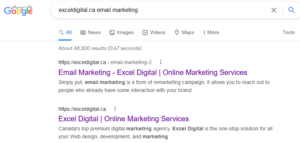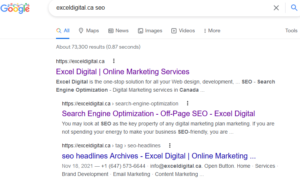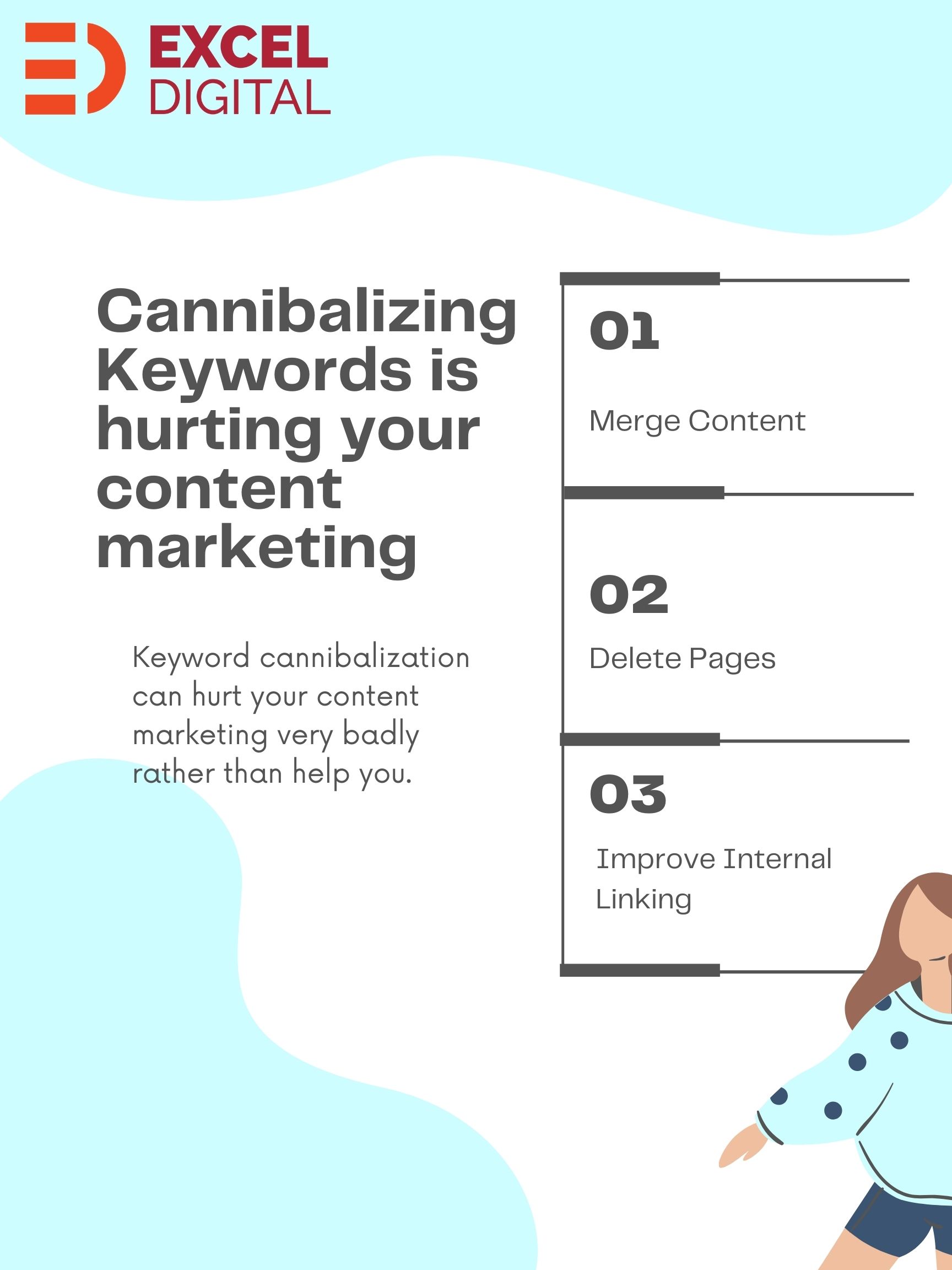In the earlier days of digital marketing, it was very easy to get ranked on a Google search engine result page for any search term. Google and other search engines use a very simple algorithm to assign the ranking. It was because of this simplicity it became very easy to game the system, the most common technique being “Keyword Stuffing” and “Keyword Cannibalization”. The logic was simple, Google thought that a piece of content is relevant if a keyword is used often, so unscrupulous content producers would simply include the same word hundreds–or even thousands–of times to boost search rankings.
As the internet progressed and the number of websites increased, it got more and more important for these search engines to give the users with quality content. So these practices nowadays can hurt your content marketing very badly rather than help you. If done often, google might simply ban your site from their platform.
How to identify cannibalized keywords?
It is very easy to identify possible keyword cannibalization problems on your website. On the Google search bar just put “yourdomain.abc+space+keyword”. This will yield a list of web pages from your website that focus on the keyword according to Google.
For example on my website “ExcelDigital.ca” here are two examples;
For the keyword, “email marketing” there is no cannibalization.

For the keyword, “seo” 2 pages are focusing on it.

There are a few ways in which you can prevent this to happen.
How to prevent Keyword Cannibalization?
There are 3 simple ways to prevent keyword cannibalization.
Webpage merge
This is most probably the simplest way to deal with keyword cannibalization. It simply means to take the content from both pages and merge them into one. For instance, if you have a page explaining how to make a pizza and the other one on how to source the ingredients to make it, you may want to take all that content and put it into a single page.
This solution might not work with all the situations of cannibalization but it surely is a start.
Delete Pages
It’s extreme, but you may want to consider entirely deleting problem web content–especially if it is no longer relevant to your website. If your business has grown, and somehow that older, less professional, personal blog post using certain keywords is still ranking higher than your desired web content, then delete the content. If the content no longer exists, then neither does the problem.
Improve internal linking
You can help Google to figure out which article is most important, by setting up a decent internal linking structure. You should link from posts that are less important, to posts that are the most important to you. That way, Google can figure out (by following links) which ones you want to pop up highest in the search engines.
Your internal linking structure could solve a part of your keyword cannibalism problems. You should think about which article is most important to you and link from the less important long-tail articles, to your most important article.
Conclusion
As your site gets bigger and you add more pages, keyword cannibalization is inevitable. To avoid this I would advise doing a full content audit of your site every month. This happens all the time with me as well, like everyone I have a few favorite topics that I love to write content on. This leads to Keyword Cannibalism. Making changes in the site structure and re-writing some articles now and then is great in avoiding cannibalism.



